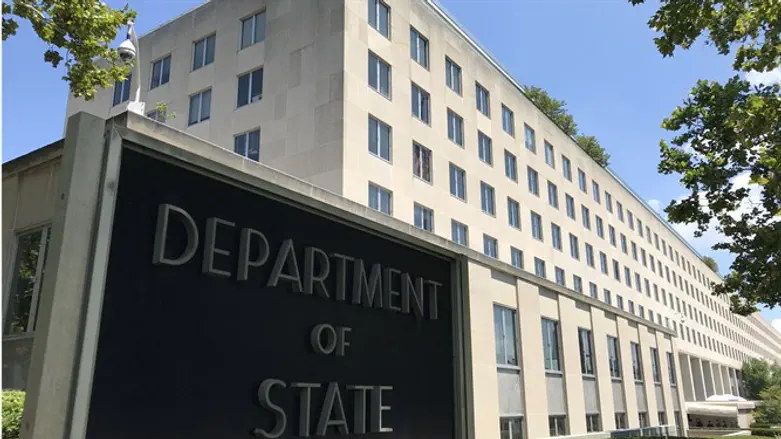
The State Department on Tuesday rebuked the Senate’s latest move to recognize the mass killing and deportation of Armenians by the Ottoman Empire during the first half of the 20th century as genocide.
“The position of the Administration has not changed,” State Department spokeswoman Morgan Ortagus said in a statement quoted by The Hill. “Our views are reflected in the President’s definitive statement on this issue from last April.”
She was referring to a statement released by Trump on global Armenian Remembrance Day which is marked on April 24 each year. Trump’s statement recognized that beginning in 1915, more than 1.5 million Armenians were “deported, massacred or marched to their deaths” under the rule of the Ottoman Empire.
The President did not describe the events as a genocide.
The State Department statement comes days after the US Senate unanimously passed a resolution that recognizes the mass killings of Armenians as a genocide.
The resolution asserts that it is US policy to commemorate as genocide the killing of 1.5 million Armenians by the Ottoman Empire from 1915 to 1923. The Ottoman Empire was centered in present-day Turkey.
Turkey -- the Ottoman Empire's successor state -- strongly rejects that the massacres, imprisonment and forced deportation of Armenians from 1915 amounted to a genocide.
On Sunday, Turkish President Recep Tayyip Erdogan threatened that his country could shut down its Incirlik air base, which hosts US nuclear warheads, in response to the US legislation.
The resolution passed by the Senate is nonbinding, expresses the sense of the Senate and does not need to be signed by the President. The White House had lobbied senators to block the resolution at least three times before it succeeded in coming to the floor, according to The Hill.
The Democratic-led House of Representatives passed the resolution by an overwhelming 405-11 in late October.
In 2016, Germany recognized the massacre of the Armenians as a genocide, similarly raising the ire of Turkey which recalled its ambassador to Germany.
Earlier that year, Turkey similarly pulled its ambassador to Austria after the European nation recognized the Armenian genocide.
Russia also has recognized the Armenian genocide, angering NATO-member Turkey.
Former US President Barack Obama had chosen not to recognize the genocide, despite an election promise he made during his 2008 presidential campaign to do so.
